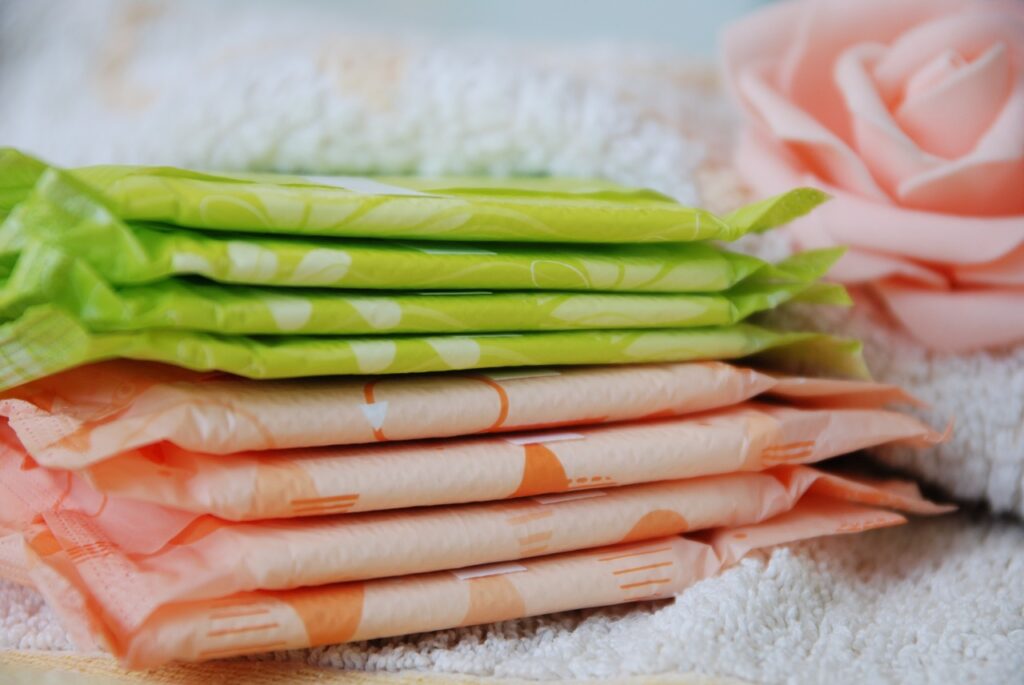
How Important is Menstrual Hygiene
Menstrual Hygiene
Monthly cycle and
menstrual practices in India and other developing nations in South Asia and
Africa still face numerous social, cultural, and strict limitations which are a
major hindrance in the way of menstrual hygiene management. In various parts of
the country particularly in rural regions girls are not readied and aware about
period so they face numerous troubles and difficulties at home, schools, and
work places.
Importance of
Menstrual Hygiene
It is the basic right
of each lady to have the option to deal with her period cleanly. However, this
does not imply that the women who have access to sanitary pads, tampons, or
menstrual cups are protected from health hazards in periods.
It may be your decision
to utilize commercial sanitary napkins, tampons or menstrual cups. However, the
worry is about the upkeep of hygienic practices during monthly cycle so you are
not presented to health hazards in periods.
Menstrual Hygiene
Management is defined by United Nations as the utilization of clean menstrual
management items to absorb menstrual discharge by women that are changed in
privacy as needed, with legitimate access to water, cleanser and disposal
techniques. In the event that hygienic practices are not followed during
monthly cycle like changing pads at regular intervals, washing and drying out
reusable clean sanitary towels appropriately in the sun and washing hands
subsequent to taking care of utilized sanitary pads; at that point the odds of
getting Urogenital tract infection increases many folds.
Health Risks of
Poor Menstrual Hygiene
As per BBC Magazine,
around 70 % of the reproductive infections in Indian ladies are brought about
by poor menstrual cleanliness. There are grave health hazards in periods if
satisfactory sanitary measures are not taken.
Infection of
Reproductive Tract: Contaminated items used to contain menstrual blood are favourable
places for a few microscopic organisms like Salmonella, Staphylococcus and E.
coli. These microbes can duplicate quickly in the reproductive tract beginning
from the cervix and upwards. They can enter the bloodstream directly from the
mucosal layer which is exceptionally porous. This can prompt sepsis and related
difficulty.
Hazardous microbes can
likewise attack the genital tract and can cause Reproductive Tract Infection.
Not changing sanitary napkins frequently can add to dampness retention and
speed up the development of harmful microorganisms.
An infected product can
modify the pH of the vaginal area. This causes an adjustment in the microflora
of the region, hence expanding the danger of bacterial vaginosis. The regular
symptoms displayed by ladies experiencing RTI are genital itching, back pain,
abdominal pain, pustules over genitalia and abnormal genital discharge.
Urinary Tract
Infection: This is the most common type of infection that is present in
women practicing poor menstrual cleanliness. UTI presents perhaps the most
genuine health risks in periods where cleanliness is undermined. At the point
when harmful microbes attack the urinary tract, they can bother the mucosal
area and cause infection. Whenever left untreated, it can form into a genuine
problem.
Cleaning or washing
from back to front:
Washing or cleaning
back to front subsequent to peeing or pooping. This really carries microbes
from the bowel to the vagina and can prompt genuine urinary tract infections. Inappropriate
washing of external genitalia, washing with just water, washing genitalia from
back to front and utilizing unhygienic items as sponges are the explanations
behind UTI during menstrual cycle.
Yeast Infections:
Candidiasis is a yeast disease which can be brought about by poor menstrual
cleanliness. Candida albicans is an opportunistic microorganism that can cause
infection in the reproductive tract and urinary tract. Vulvovaginal candidiasis
can influence 75% of women of reproductive stage and is generally asymptomatic.
Hepatitis B
Infection: Hepatitis B is generally transmitted through bodily fluids,
including menstrual discharge. Henceforth it is essential to wash hands
altogether with cleanser and water after and prior to changing sterile napkins.
The equivalent is valid for sexually transmitted disease like HIV, candidiasis
and Trichomonas infection.
Increased Risk of
Cervical Cancer: Cervical cancer is the cancer of the cervix or the uterine
opening which is overwhelmingly brought about by the Human Papilloma Virus.
132000 Indian women are diagnosed to have cervical cancer each year. Lack of
menstrual hygiene is a main factor that adds to the advancement of this
disease.
No women should live
with the shame of period or suffer in silence. The spread of menstrual
awareness and utilization of sterile items to manage monthly cycle are the most
ideal approaches to dodge health hazards in periods.
Wearing one sanitary
pad for a long time:
Many of us have done
this mistake knowingly or unknowingly. If you don’t change your pads habitually
(somewhere around each 5-7 hours), you are substantially more inclined to
create rashes and vaginal yeast diseases with the symptom of terrible smell
Unprotected sex
during your period:
Most of you may be
certain of not getting pregnant because of period sex; we world beg to differ.
Regardless of whether the odds appear to be less you can in any case get pregnant
in the event that you don’t take proper protection. Please use protection, not
just because you could get pregnant but also because you are more likely to
contract a STD (sexually transmitted disease) like herpes, HIV and Hepatitis B
during this time of the month.
Not washing your hands
We have all been taught
in school to wash our hands to avoid infections. Not washing your hands
subsequent to changing your sanitary pads can cause yeast infections or
Hepatitis B. Thus, regardless of whether you’ve quite recently been hanging out
staring at the TV the entire day, it’s vital that you wash your hands prior to
wearing a pad and in the wake of disposing one as well.